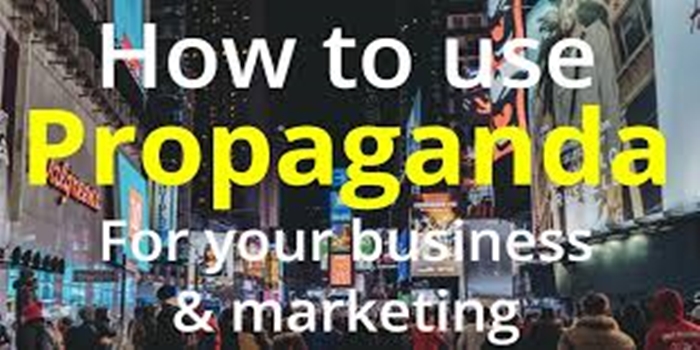In this article, we discussed the meaning of propaganda in marketing, how to deal with it, the examples, and also the types and negative impact
Definition
Propaganda in marketing is a set of strategies that use manipulated information to influence public opinion and persuade people to buy a product or support a cause. Propaganda is often used in advertising to attract customers and change their views about other products.
Dealing with propaganda in marketing” means actively identifying and addressing manipulative marketing tactics that use biased or misleading information to extremely influence consumer opinions and behavior, often by exaggerating benefits, creating false urgency, or attacking competitors, to promote a product or service, rather than presenting factual details.
How does propaganda work in marketing?
Manipulates emotions: Propaganda appeals to emotions and biases rather than logical reasoning.
Creates the impression of popularity: Propaganda can create the impression that a product is already popular and widely accepted.
Uses half-truths: Propaganda can include facts, arguments, rumors, half-truths, or lies.
Uses testimonials: Propaganda can use testimonials from people who claim to have had positive experiences with a product or service.
How to “deal with” propaganda in marketing:
Critical evaluation:
Analyze marketing messages for biased information, exaggerated claims, and logical fallacies.
Fact-checking:
Verify information presented in advertisements with reliable sources
Consumer education:
Promote awareness about common propaganda techniques to help consumers make informed decisions
Ethical marketing practices:
Focus on providing accurate, transparent information about products and services.
Examples of propaganda in marketing
Testimonials: A celebrity or respected individual supports a product or idea.
Bandwagon: Encourages people to do what others are doing.
Join the crowd: Creates the impression that using a product will make you part of a movement or trend.
Types of Propaganda Used in Marketing
Bandwagon
This technique encourages consumers to purchase a product or support an idea because “everyone else is doing it.” The underlying message is that you’re missing out if you don’t jump on the bandwagon. We often associate this with the application of peer pressure.
Testimonial
A testimonial is when a marketer uses confirmations from celebrities, experts, or relatable individuals to persuade customers of the value of a product. The underlying idea is that if it’s good enough for this person you admire or trust, it’s good enough for you.
Glittering Generalities
Marketers use unclear and positive phrases that are appealing but lack specific details. Words like “natural,” “pure,” or “revolutionary” can be used to describe products without offering concrete evidence of such claims.
Plain Folks
Advertisers present their products as a good choice for “ordinary people.” By portraying their product or brand as down-to-earth or relatable, they aim to connect with everyday consumers. There are numerous strategies that employ this, such as not having actors appear in an ad.
The Negative Impacts of Propaganda in Marketing
Misinformation
Propaganda techniques can sometimes result in consumers receiving distorted or false information about products. It can lead them to make ill-informed purchasing decisions. One side effect of this is bitterness or resentment towards the brand in question.
Consumer Disillusionment
Over time, if consumers repeatedly feel misled by propaganda-style advertising, they may become disillusioned or skeptical. This can make them start doubting marketing claims in general, leading to mistrust.
Cultural Impact
Repetitive marketing narratives (like certain beauty standards or lifestyle aspirations) can shape cultural norms and ideals. It can often lead to marginalizing those who don’t fit into these prescribed notions.
Economic Consequences
Misleading advertisements can lead to bad investments or purchases. If a significant number of people invest in a product or service based on false claims, it can disrupt markets. Actions like this can sometimes be criminal or liable for damages.
Conclusion
Propaganda in marketing refers to the intended use of convincing techniques, often manipulative and biased, to influence consumers’ opinions and behaviors towards a specific product or service by presenting information in a way that favors the brand, sometimes omitting negative aspects, and often appealing to emotions rather than facts to create a desired perception; essentially, it’s using marketing tactics to promote an agenda beyond just selling a product, similar to how political propaganda aims to sway public opinion on a cause.
READ: Crisis Management in Brand Reputation

